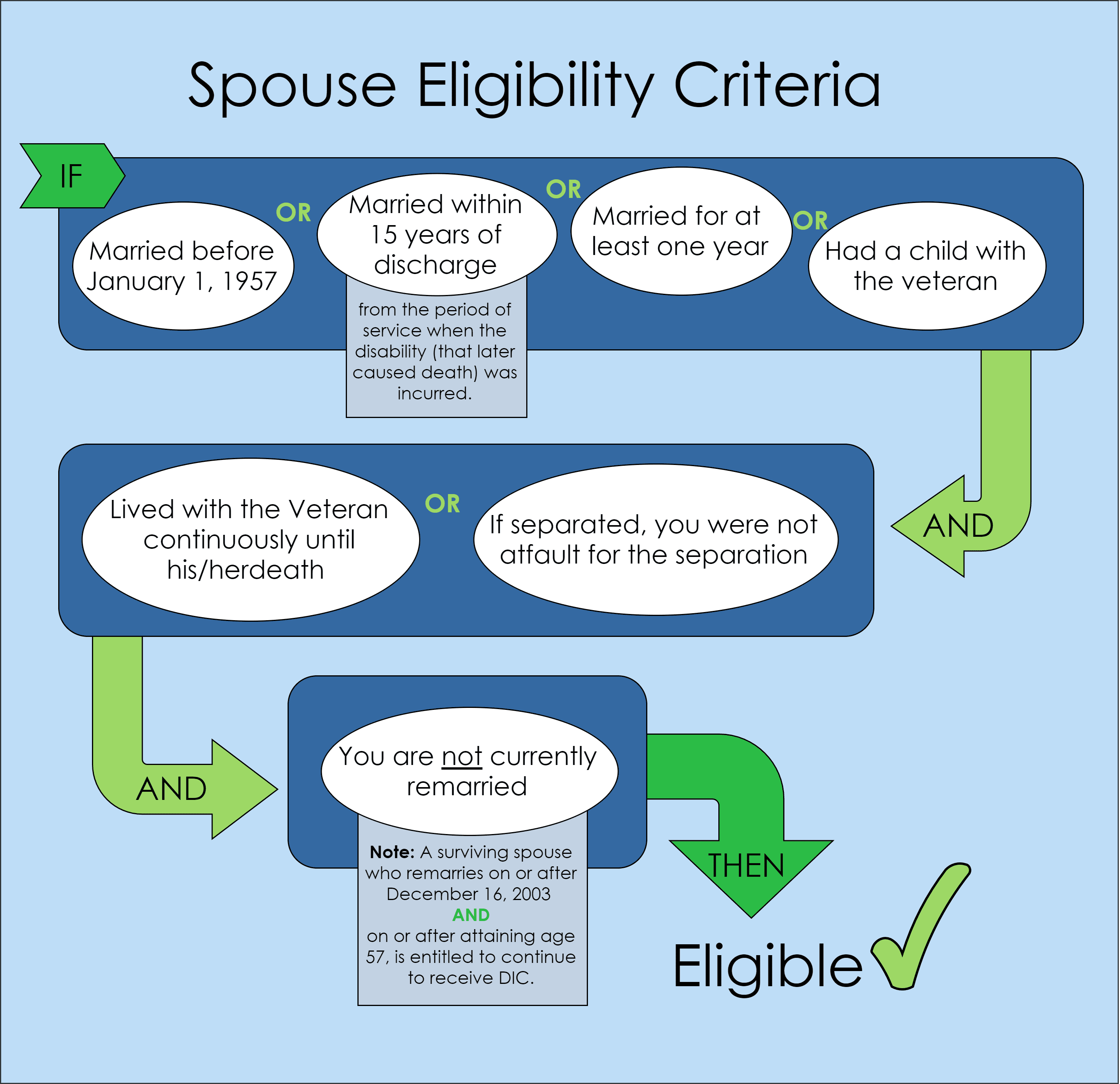VA Dependency and Indemnity Compensation (DIC) Rates for 2020

CCK Law: Our Vital Role in Veterans Law
What is Dependency and Indemnity Compensation (DIC)?
Dependency and Indemnity Compensation (DIC) is a tax-free, monthly benefit paid to a surviving spouse, children, and sometimes parents of a veteran whose death was related to military service or a service-connected condition. Survivors are not paid the same monthly amount that the veteran was receiving at their time of death. DIC has its own exclusive rates (see section below).
In order for survivors to qualify for DIC benefits, veterans and servicemembers must meet one of the following criteria:
- “The servicemember died while on active duty, active duty training, or inactive duty training;” or
- The veteran passed away due to a service-connected condition; or
- The veteran’s death was not service-related, but was entitled to receive VA disability compensation for a totally disabling condition (or total disability based on individual unemployability, TDIU):
- For a period of at least 10 years prior to death; or
- Since release from active duty and for a period of at least five years prior to the veteran’s death; or
- “For at least one year before death if the veteran was a former prisoner of war who died after September 30, 1999.”
VA lists eligibility requirements for spouses as well when it comes to receiving DIC benefits. Surviving spouses are typically eligible for DIC benefits if they were married to the veteran for a period of at least one year immediately prior to the veteran’s death. Survivors who were not technically married to the veteran may still qualify for these benefits in certain circumstances. VA will recognize common law marriages for DIC benefits if your state’s laws allow. Additionally, VA will allow an unmarried veteran’s surviving spouse to collect DIC benefits if they:
- Had a child with the veteran; and
- Lived with the veteran continuously until the time of their death; and
- Were not separated from the veteran or, if separated, were not responsible for the separation
How Much is Dependency and Indemnity Compensation (DIC)?
As mentioned above, DIC has its own exclusive rates, which tend to increase annually with VA’s cost of living adjustment (COLA). In 2020, DIC benefits will see a 1.6 percent increase. As such, the monthly amount will now be $1,340.14 as compared to $1,319.04 in 2019. Survivors may also receive additional compensation if you are homebound and need assistance carrying out activities of daily living (e.g., bathing, dressing, eating, or toileting).
How to Apply for Dependency and Indemnity Compensation
The formal application used to submit a claim for VA survivors benefits is Form 21P-534EZ, Application for DIC, Death Pension, and/or Accrued Benefits. This document is eight pages long and contains 12 sections. Along with this application form, it is important to submit as much substantive evidence as possible, such as the veteran’s death certificate, marriage certificate (if applicable), and any divorce decrees from prior marriages. Dependent children should submit their birth certificate and school/college transcripts if over the age of 18 and attending school full time. VA requires the aforementioned documents when applicable and therefore, submitting these documents along with your application form can help expedite the adjudication process.
Importantly, applying for DIC benefits can be a very lengthy and difficult process. As such, it may be beneficial to seek assistance from a Veteran Service Organization, VA-accredited claims agent, or VA-accredited attorney. Seeking assistance can ensure all of the proper forms are completed and necessary evidence is submitted.
About the Author
Share this Post

